Film Review: Paths of Glory (1957)


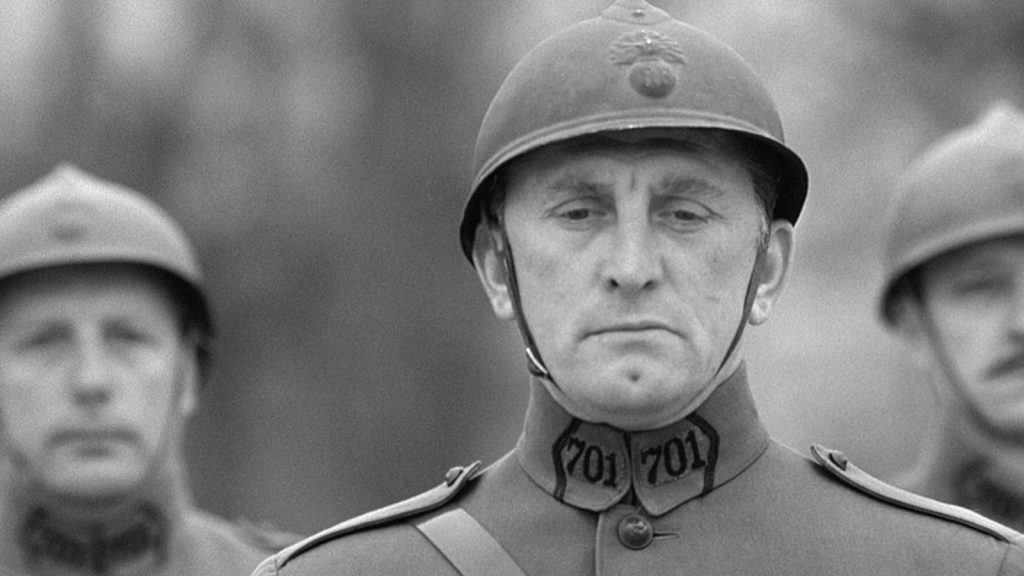
While watching Kubrick’s Paths of Glory I kept returning to François Truffaut’s famous quote about there being no such thing as an anti-war film. Truffaut argued that the depiction of war on film was in itself a glorification of it, regardless of potential political motives behind the portrayal of the violence or carnage. To him, war movies are, in a sense, recruitment films. He had a point, I must admit, although I suspect a viewer’s leanings on the subject going into the film may have an impact on whether it’s perceived as a glorification or a condemnation.
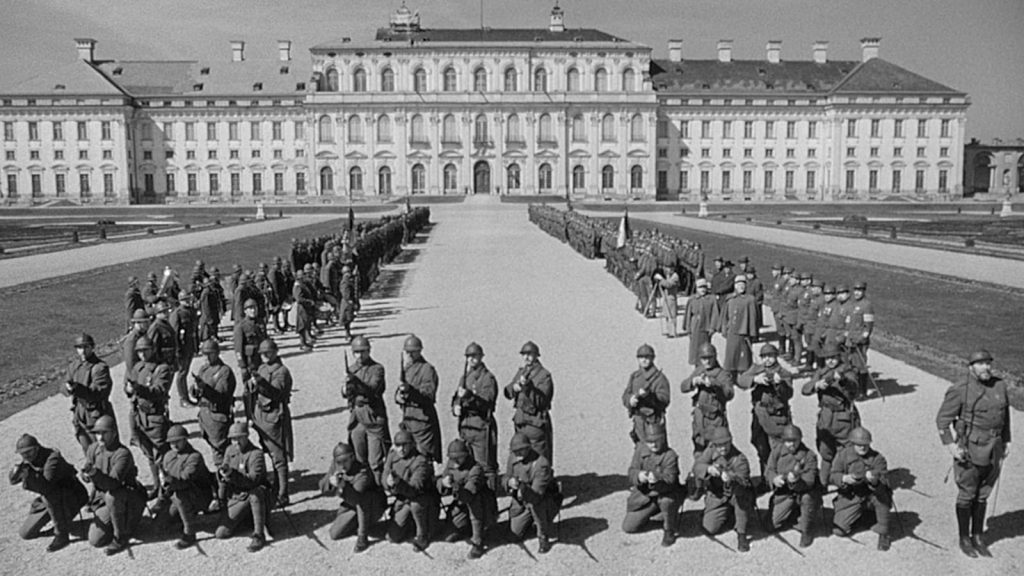
I thought myself very wise and smart having come up with this Truffaut analogy. That is, until I read some other reviews of the film, including the great Roger Ebert’s, and realized that this very notion had been struck upon many, many times before. Oh well. At least I know I’m on the right track.
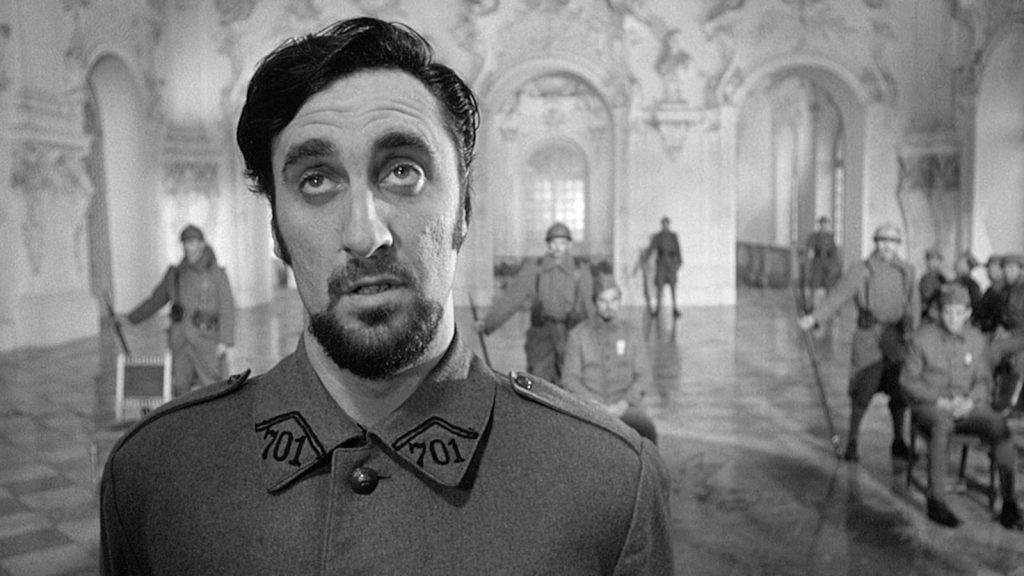
At any rate, if there is such a thing as an anti-war film, Paths of Glory is certainly it. Similar in theme to Kubrick’s film of a few years later (1964’s Dr. Strangelove, of course), Paths is extremely effective in pointing out the absurdity of the war machine. It’s an infuriating look at the hypocrisy and inhumanity of the entire affair of battle, from top to bottom. You’ll shake your head in disbelief at the callousness of the higher ranks, and the things they’ll do to maintain their position.
On a side note: Kubrick’s other anti-war film, Full Metal Jacket (1987), while amazing, could easily fall into the trap Truffaut was speaking of in his famous quote.
Paths tells the story of an ill-conceived assault on a well-fortified German-held hill in France during World War I. The brass wants the hill taken, and uses the vanity of an ambitious General (George Macready) to get the ball rolling. As the orders descend the chain of command, they end up on the plate of Colonel Dax (Kirk Douglas), who commands an entrenched regiment. The assault fails, and the rest of the film details the need to find blame. What ensues is a classic and heartbreaking example of the “shit rolls downhill” theory of life.
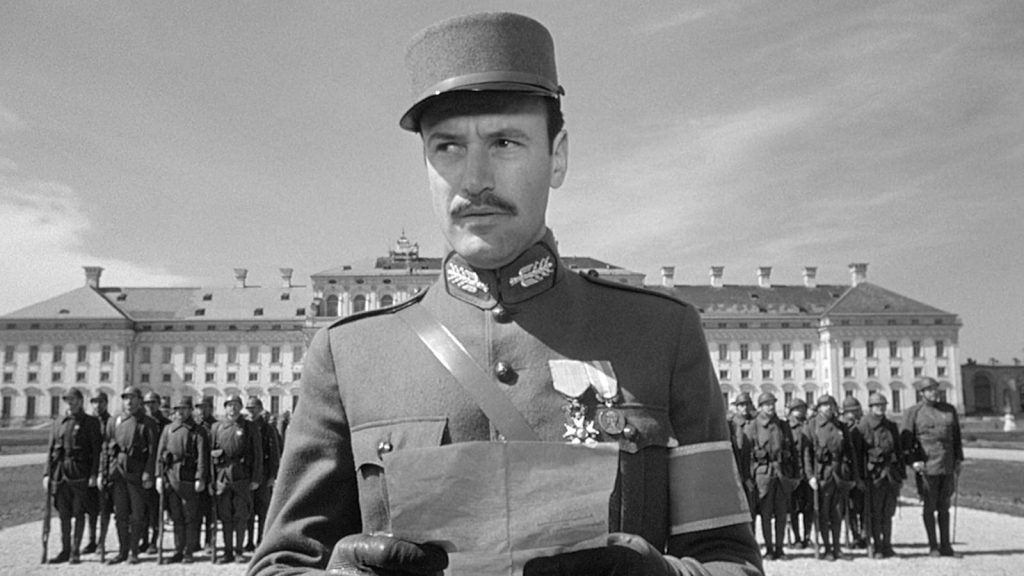
The assault was doomed from the word go, but reputations and promotions were on the line so it was greenlit anyway. When it failed, the command naturally couldn’t be blamed, so it fell on the backs of the shell-shocked, war-weary, and exhausted soldiers in the trenches. An example needed to be made, and in a shockingly simple, yet agonizingly tense long walk, it certainly is. According to the brass anyway.
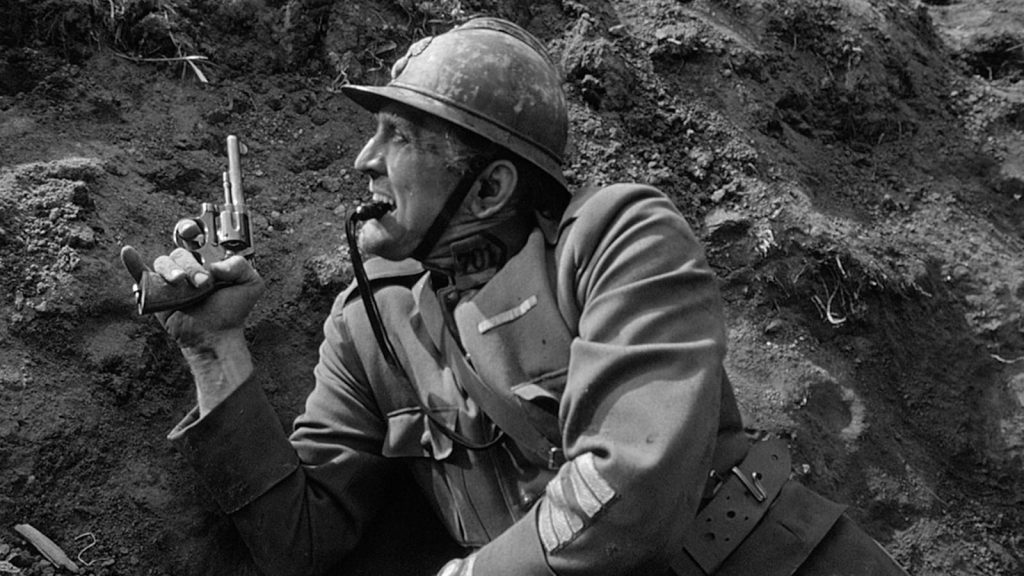
The wisdom of this example is questionable and is an ode to the hypocrisy of “civilized” militaries. Mostly, though, what we witness is the complete disregard for human life at the expense of saving face and career advancement. As in Strangelove, the very human cost of war isn’t in the hands of the people whose lives are on the line, but in those that are sitting in a cozy room with comfortable chairs. They discuss casualty predictions over sandwiches. And when they do visit the front, as Macready’s General Mireau does, it’s obvious that they’re completely out of touch with the realities of war. When a soldier suggests that his friend has a bit of shell shock, the General has him thrown out, saying there’s no such thing. The pure absurdity of it all would be hilarious if it weren’t so damn tragic.
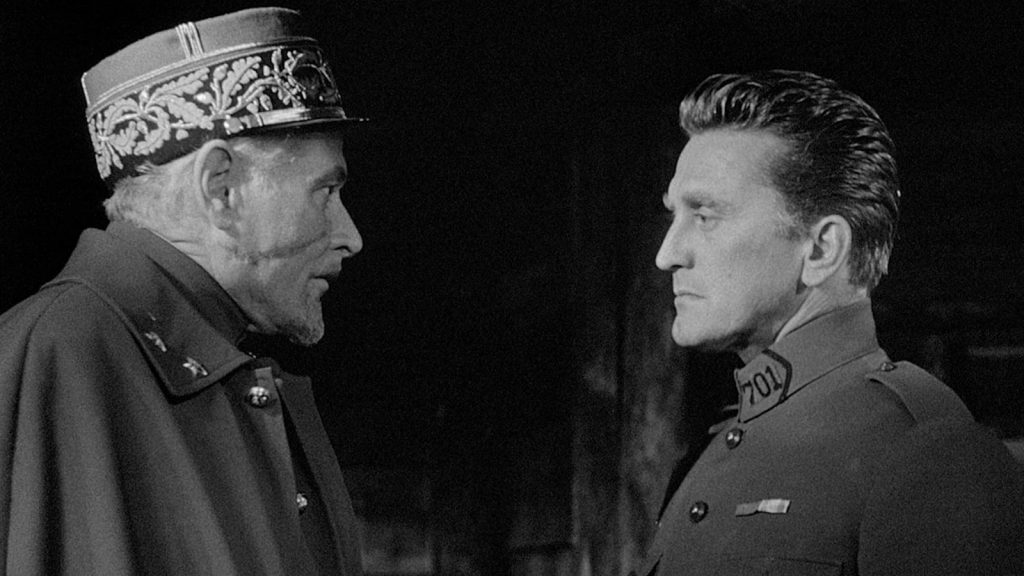
The film has two very haunting, yet eerily similar scenes involving the soldiers en masse and their collective attitude. First, when Colonel Dax is walking through the trenches, preparing for the attack, you can see, not just the fear, but the futility in their faces. They are not stupid. They know what’s in store for them, and that they are nothing more than fodder in an uncaring and unforgiving machine. Second, the very last scene of the film. It starts as a celebration as the soldiers are gathered in a pub, drinking and carousing. A German girl is brought on stage, much to the delight of the Frenchmen. She is chided, harassed, and belittled by the men and the barkeep. She is terrified, but when she begins to sing, the crowd quiets. They grow emotional at her rendition of “The Faithful Hussar,” a German folk song. They don’t know the words but hum the tune. As they do, their faces and demeanors change form raucous to something much more akin to how they looked in the trenches moments before the assault. Has their mortality, and the futility of their lives caught up with them once again? At that moment, just like that, these doomed men have seen their futures.
United States • 1957 • 88 minutes • Black & White • 1.66:1 • English • Spine #538
Criterion Special Features Include
- New high definition digital transfer made from 35 mm film elements restored by UCLA Film & Television Archive in cooperation with MGM Studios, with funding provided by the Film Foundation and the Hollywood Foreign Press Association, with uncompressed monaural soundtrack on the Blu-ray edition
- New audio commentary featuring critic Gary Giddins
- Excerpt from a 1966 audio interview with director Stanley Kubrick
- Television interview from 1979 with star Kirk Douglas
- New video interviews with Kubrick’s longtime executive producer Jan Harlan, Paths of Glory producer James B. Harris, and actress Christiane Kubrick
- French television piece about a real-life World War I execution that partly inspired the film
- Theatrical trailer
- English subtitles for the deaf and hard of hearing
- PLUS: A booklet featuring a new essay by film scholar James Naremore
